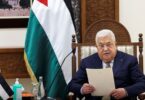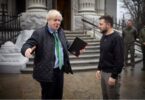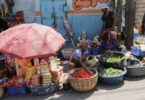VARIVODA Stanislav
The upcoming presidential election in the Republic of Korea on March 9, 2022 is likely to be the most controversial in the last couple of decades. It is expected that the main struggle for the highest state post will unfold between candidates from the two largest political organizations: the Toburo Democratic Party and the conservative Civil Force Party. They are respectively represented by the former Governor of Gyeonggi Province, Lee Jae Myung, and the former Attorney General, Yoon Suk Yeol. Lower-ranking candidates such as the left-wing Justice Party’s Sim Sang-jeong or the centrist People’s Party Ahn Chul-soo are unlikely to win the presidency, most experts say.
At the same time, neither Lee Jae Myung nor Yoon Suk Yeol were able to present a more or less coherent program and captivate voters. Also, none of them formulated specific steps, as if they came to power, they intend to restore the country’s economy, which was shaken by the COVID-19 pandemic and affected the standard of living of citizens.
According to personal observations, basically their election campaigns come down to pouring more dirt on their main opponent. They accused each other of corruption, nepotism, abuse of power, and even threatened that their opponent would be in jail after the election. Therefore, it is not surprising that many citizens of the country are not particularly enthusiastic about the upcoming elections, preparing to vote for the “lesser of two evils.”
Opinion surveys are taking place in South Korea every week or even more often, but so far have not been able to identify the leader. According to a poll conducted on December 1 by Channel A, 50% of respondents indicated that they did not like any of the candidates. The difference in support between Lee Jae Myung and Yoon Suk Yeol fluctuates within a few percentage points of statistical error. Thus, the latest poll conducted from January 9 to 14 by the Realmeter agency showed that Yoon Seok Yeol is now ahead of his rival from the ruling party by 3.9 percentage points.
40.6% of respondents expressed their support for the ex-Prosecutor General, which is 6.5% more than according to the results of the previous poll. Lee Jae Myung was supported by 36.7% (3.4% less than last week). In third place is People’s Party candidate Ahn Chol-soo, who received 12.9% of the vote. Next comes Justice Party candidate Sim Sang-jeong with 2%.
Coalitions and accusations
As you can see, the outcome of the March 9 elections has not yet been determined, and even some “random” factors can tip the scales.
Thus, opponents accuse Lee Jae Myung of being involved in a major scandal in his subordinate province, when administration officials, using insider information, bought cheap land on which it was planned to build several residential complexes.
Yoon Seok Yeol is suspected of using his official position when he was the Attorney General to achieve his own political goals.
Yong and Li even agreed to create a special body to independently investigate these allegations, but so far the case has not progressed beyond words and the political forces supporting them do not seem interested in such a commission starting work. However, if this does happen, one of the candidates, or even both, may drop out of the election race altogether.
On the other hand, building a political alliance can also help one of the leaders in the race to gain the upper hand. It is possible that Lee Jae Myung will seek support from the Justice Party, Yoon Suk Yeol – from the People’s Party. However, as South Korean political analysts note, the formation of such alliances is still unlikely, since the political program of both less popular candidates includes delivering Korea from the hegemony of the Toburo Democratic Party and the Civil Force Party.
There is, however, one person who can confuse all the cards. This is Ho Kyung-young, head of the South Korean Revolutionary Dividend Party.
Political shocking
Until recently, Ho Kyung Young was considered more of an outrageous media personality than a politician. He is famous for his claims that he can levitate and instantly transport himself from one place to another, that he can heal patients by the laying on of hands, and that he has an IQ of 430. He also regularly made various unrealistic political statements and regularly participated in all kinds of elections – literally in all in a row. Moreover, these presidential elections are not his first: in 1997, he won 0.15% of the vote, and in 2007 – 0.4%. He also ran for mayor of the South Korean capital in 2021, receiving 1.07% of the popular vote.
Yes, Ho Kyung Yong has never been considered as a serious political force, but recent polls have shown that more than 3% of voters intend to vote for him, and this figure continues to grow. Most likely, it was the unattractiveness of the main candidates that brought him unexpected popularity. But if he decides to support one of them, that same 3% of the vote could play a decisive role in the fate of South Korea for the next five years. It seems that for his support, Ho Kyung Young will be able to get a lot and finally get into big politics.
Shortly before writing this column, I had a chance to talk to him, and in a conversation, Ho Kyung Yong said that if he came to power, he would offer Russia to take a number of Far Eastern territories from her on a long-term lease: Sakhalin, Amur, Khabarovsk, Magadan, Kamchatka and Chukotka, where , in his opinion, “a lot of Koreans live.”
“We need to rent these areas from Russia, creating a belt of economic development in the Busan-Vladivostok direction,” said Ho Kyung-yong, promising to send 100,000 South Korean officials there and turn “desert lands into a prosperous oasis.” According to him, in these regions, which are many times larger than the territory of South Korea itself, “it will be possible to produce various agricultural products, including soybeans and wheat,” which “will be beneficial to both countries and strengthen bilateral relations.” He also mentioned the possibility of building a nuclear power plant there: the electricity generated by the nuclear power plant would be supplied to the Korean Peninsula.
Ho Kyung Yong also intends to invite the DPRK to create a large tourism cluster in the Wonsan area and invest in the development of other areas, in particular Chongdin, Rajin and Songbong. In addition, the politician wants to involve China, Russia and Japan in this process.
One of the most resonant points of his election program is to double the GDP of the Republic of Korea over the next five years. This, he said, would allow the state to pay every adult citizen of the country an unconditional monthly income of 1.5 million won ($1,250).
Ho Kyung-young also promises to cut the number of MPs by three times, make top government positions unpaid and disband several departments, including the Ministry of Family Affairs and Gender Equality, in order to save the budget.
Courtesy: (TASS)






